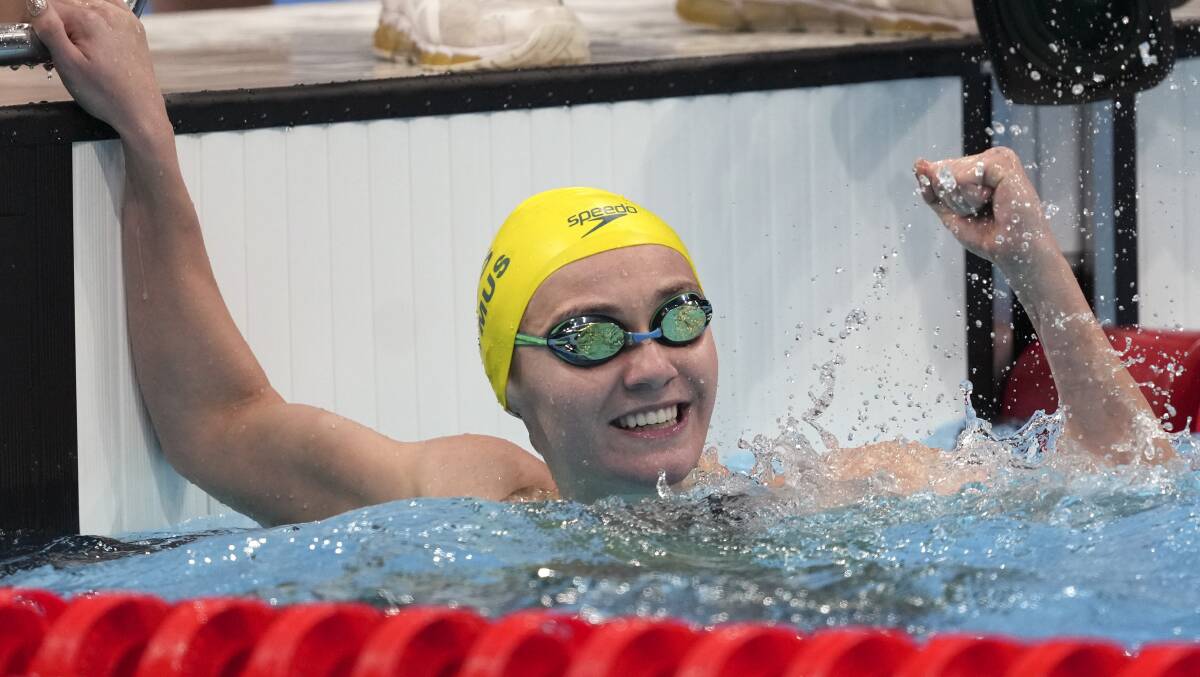
Watching the Olympics excites me. My patriotism swells and I find myself in tears when we win gold.
Subscribe now for unlimited access.
or signup to continue reading
Why? I am not out in that pool swimming, nor am I rowing or running. It has nothing to do with my abilities, nor does it owe anything to my virtues. But I am somehow represented by that green and gold, and a victory feels like it legitimates me as somebody. Those victories defend my sense of self. My ego is offered some protection. I imagine that is the case for many millions of Australians.
Of course, patriotism works because of love of place and the pride of being noticed on the world stage. But it does not assume we are superior. Nationalism, on the other hand, works less from love and more because of competitive hate. It is the prestige that comes specifically from triumphing over others, confirming a belief that our nation is superior.
So when I keep messaging my Kiwi mates to ask how many gold medals they have won, I hope it is patriotism, not nationalism, that characterises my Olympic excitement.
Curiously, these Olympics are even more nuanced as it feels like Queensland against the world, given so much of our country's top talent and their family have been based in the Sunshine State prior to these Games. We're getting very used to seeing live crosses to ecstatic families in Noosa each time a medal is won.
Perhaps I am especially attuned to this in a time of border closures and Covid state rivalry. I was actually relieved when Ariarne Titmus, after winning her second gold in the 200 metres, said "I come from a little town in Tasmania and if I can do it anyone can," as well as the footage of high school students in Adelaide cheering on their alumni Kylie Chalmers in the 100 metres freestyle.
Both instances thrilled me because it felt like we were at last a nation, with diverse geographical representation rather than a team of Queenslanders, but it gave me pause to reflect on why I felt that way.
As a Victorian, my sense of sovereignty and protection has not primarily looked to Prime Minister Scott Morrison or to national sovereignty, but rather to our state borders, our ring of steel and Premier Daniel Andrews' decisions. I was surprised at my initial umbrage that we were being asked to send our vaccines to Sydney. How dare they? Especially after our terrible lockdowns. But then I realised these are fellow Australians in greater need, and how could I be so selfish and be thinking like this?
It could be because Covid had reminded me that the essence of sovereignty is who is protecting me. The state boundary line, and the Premier, had become my line of defence.
In both wars, Britain still looked after our foreign affairs and our defence. While Australian Federation celebrated a feel-good national identity in 1901, defence policy and foreign relations were left to the mother nation. That is why the fall of Britain's impregnable defences in Singapore in 1942 was such a profound wake-up call. John Curtin made his famous decision to assume a fuller national sovereignty despite the pangs and ties of kinship to Britain.
READ MORE:
Covid is an invisible virus that has penetrated our defences, and after closing our national borders (sort of) we have rediscovered the steel of state boundaries and power of state sovereignty in chief medical officers and immediate border closures. We now viscerally know that sovereignty in Australia is actually less about feel-good national identity - even in Olympic gold - and more about who is actually charged with protecting us.
This protection is both shared and split in our federation. The federal government is responsible for quarantine and securing the vaccines, and states for health delivery and getting those jab into arms. They share responsibility around aged care, hotels as temporary quarantine facilities and economic relief packages. When shared responsibilities are in conflict, we emotionally prefer a state premier. In Victoria, our mean-spiritedness to sharing our vaccines with Sydney likely has something to do with Scott Morrison being perceived as the Prime Minister for NSW, as well as NSW being praised as the "gold standard" compared to lockdown-trigger-happy Victoria with incompetent contact tracers.
But the trouble with this virus is that we need global protection, and a global sovereignty. The Delta variant started in India but has led to chaos in rich nations, even those with high levels of vaccination. With Africa and Asia left abandoned with so few vaccines due to weak spending power, we are seeing the result of no one being responsible to protect the poor. And none of us can be safe and free until this ends for all.
The "End Covid for All" campaign says we have to do more than overcome our state parochialism by sharing vaccines with Sydney. The ethical prerogative is to share our pandemic-fighting resources with those in greatest need. The fact that poor nations are unable to vaccinate even their healthcare workers should cause us to lift our affections beyond ourselves. Due to this pandemic, never has Noosa had so much in common with Jakarta - and never have we needed the purest sense of Olympic ideals to transcend our parochial fears.
- The Reverend Dr Tim Costello is a former chief executive of World Vision Australia.

